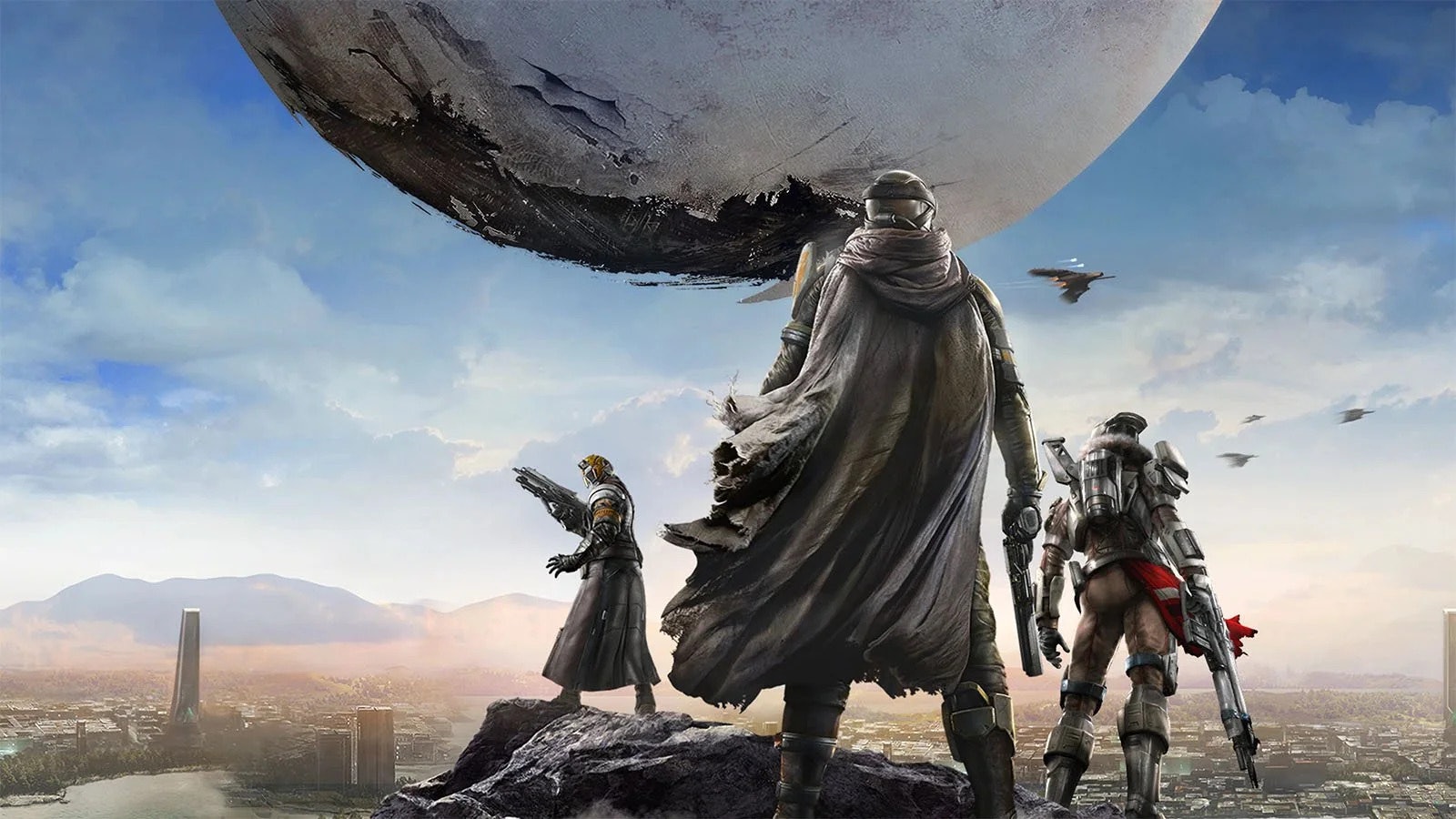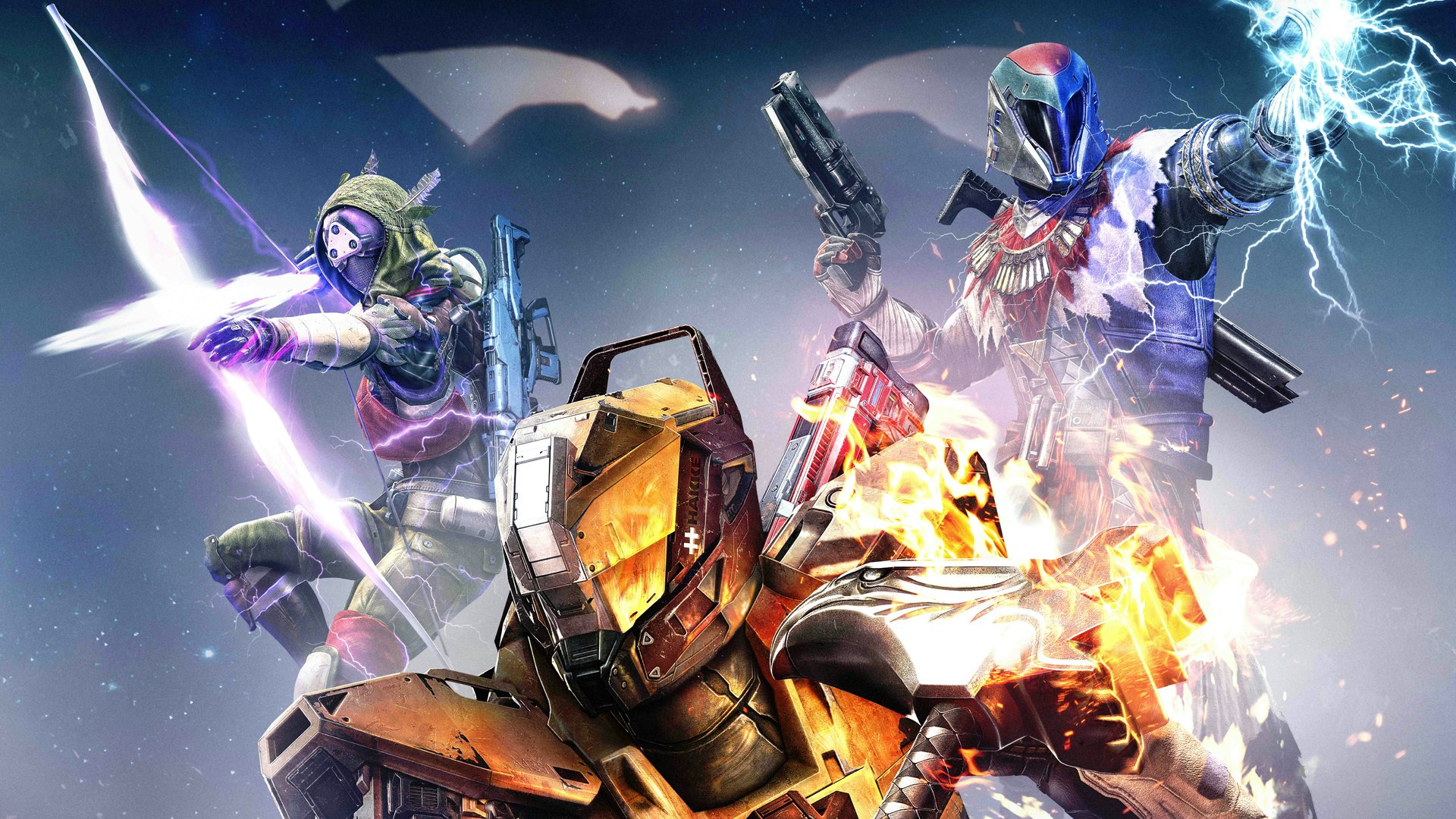
Bungie wanted to continue exploring the realm of futuristic shooters. This wasn’t a huge surprise after the success of its work on the Halo series, but after parting ways with Microsoft in 2007, the studio was free to try something new. The result was... another sci-fi shooter, but this time with a twist: fantasy. Bungie infused a far-future spacefaring game with magic, haunted ruins, and knights in shining armor. The result is a game where gunslinging space cowboys rub shoulders with evil wizards and laser rifles have as much place on the battlefield as fireballs. It’s a mish-mash of cultural influences that somehow works, its outwardly silly premise giving way to an entrancingly deep story the further you dig.
That’s how you get Destiny, a game that has had an outsized influence on the modern gaming landscape. Released on September 9, 2014, the multiplayer shooter is a pastiche of influences as distinct from each other as Star Wars and World of Warcraft, made so well that it’s gone on to inspire countless games after it. Ten years after its release, Destiny has been completely overshadowed by its sequel, but it remains one of the most interesting and important games of the 21st century.
At the beginning of development, Destiny looked nothing like it did at release. Instead, it began as “a more traditional fantasy concept starring wizards, grub lords, and giant frogs battling in ancient settings,” Polygon reported after hearing a 2013 talk by the game’s design director. But thanks to those creative design choices by Bungie, Destiny now appeals to fantasy RPGs as much as sci-fi shooters, since it’s in effect both at the same time.
While Bungie has rejected outright calling Destiny a massively multiplayer online RPG, it does borrow as much from the genre as it does from Halo and its ilk. Destiny is set in a persistent online world with an ever-changing story that nonetheless lets players experience the game at their own pace. It packs its social spaces with dozens of players, even if you can only interact meaningfully with a much smaller number who are on your squad during missions. It features player-versus-player shootouts, a cast of likable characters, and endgame raids to satisfy the digital high achievers, so players of all types can find something to love, and in some cases get deeply obsessed with.
Live service games are everywhere these days, and that’s at least in part due to the success of Destiny. Ditching the subscription model and massive online worlds of traditional MMORPGs, live-service games like Destiny give players more limited spaces to interact and make their money on optional microtransactions, while still providing a steady stream of updates to keep their experience fresh. Destiny isn’t the first game to try this model, but its stellar success was followed by waves of games with the same structure.

Speaking to just how rare its practices were at the time, reviews of Destiny upon release were quick to criticize its “manipulative” nature, incentivizing players to log on every day to keep from falling behind in power levels and not miss any limited-time content. Following in Destiny’s footsteps, the live-service model became vastly more popular than it was before, often pushing players to part with their paychecks far more aggressively. The push for online games to keep their players hooked also led to countless projects that were shelved in development or abandoned quickly after launch when the reality that not every game can keep people playing forever caught up with them.
At the same time, Destiny represents an era of live-service that’s in some ways healthier than the current one. While Destiny was a success at launch, it wasn’t an unqualified one. The game faced plenty of criticism for its many failings, from its thin but convoluted story to sometimes underwhelming locations and a dull campaign loop. Nowadays, that could be enough to spell the end for a live service game, but Destiny — with the advantage of not fighting dozens of near-identical competitors — persevered.
After its good-but-not-great launch, Destiny went on to receive three expansions, hitting its peak with The Taken King. The second of three expansions, The Taken King is still considered by many to be the best point in Destiny’s history. In a year when Sony can invest nearly a decade into the development of Concord, then pull its servers offline before its developers can even cash their next paycheck, it’s almost inconceivable that a game like Destiny would be given the chance to thrive today.
Further complicating Destiny’s legacy are revelations about conditions at Bungie during its development. A 2021 report from IGN found excessive crunch and a toxic work culture going back to at least 2011. Design director Christopher Barrett (who gave the 2013 GDC talk on Destiny’s fantasy origins) was reportedly fired last month for inappropriate behavior toward women at the company, according to Bloomberg.
So in the end, the tale of Destiny is emblematic of the games industry in both its highs and its lows. It was born of a wild leap of faith, marrying a bizarre, genre-mixing story with satisfying gunplay and an MMO loop. It survived a rocky launch to improve itself through multiple expansions and a sequel that’s still thriving today. But at the same time, it was made under reportedly horrid conditions that empowered people unfit to lead a studio, preyed on some players’ propensity toward addiction, and inspired a wave of cash grabs that left careers burning in their wake.
Unfortunately, the modern games industry resembles the failures of Destiny far more than its successes. On its tenth anniversary, let Destiny serve as both an example of the value of letting novel ideas soar and a reminder of how the industry is still falling short in serving players and developers alike.







